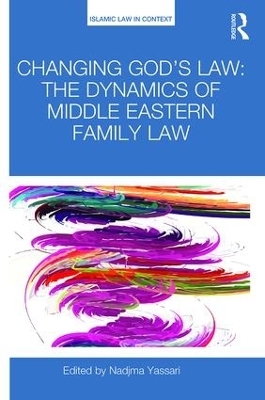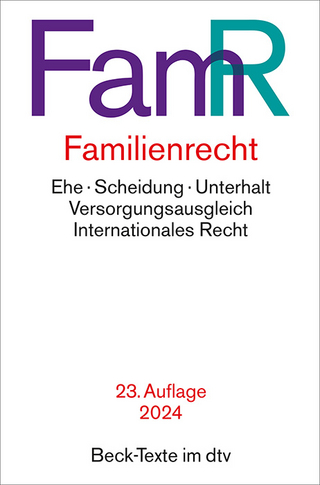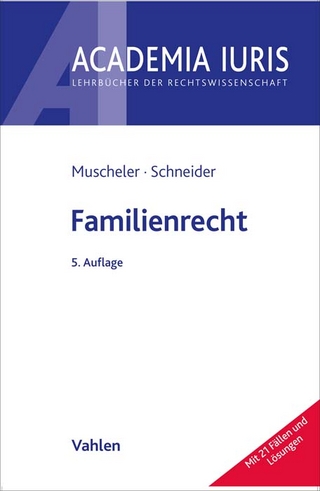
Changing God's Law
Routledge (Verlag)
978-1-4724-6495-8 (ISBN)
This volume identifies and elaborates on the significance and functions of the various actors involved in the development of family law in the Middle East. Besides the importance of family law regulations for each individual, family law has become the battleground of political and social contestation. Divided into four parts, the collection presents a general overview and analysis of the development of family law in the region and provides insights into the broader context of family law reform, before offering examples of legal development realised by codification drawn from a selection of Gulf states, Iran, and Egypt. It then goes on to present a thorough analysis of the role of the judiciary in the process of lawmaking, before discussing ways the parties themselves may have shaped and do shape the law. Including contributions from leading authors of Middle Eastern law, this timely volume brings together many isolated aspects of legal development and offers a comprehensive picture on this topical subject. It will be of interest to scholars and academics of family law and religion.
Nadjma Yassari is a Senior Research Fellow at the Max Planck Institute for Comparative and International Private Law in Hamburg where she heads the Department for the Laws of Islamic Countries. In April 2009, Nadjma Yassari established the Max Planck Research Group 'Changes in God’s Law: An Inner Islamic Comparison of Family and Succession Laws', which she has been leading since. Her main fields of research are national and private international law of Islamic countries, in particular the Arab Middle East, Iran, Afghanistan, and Pakistan with a special focus on family and successions law.
Preface; Introduction: new family law codes in Middle Eastern countries: reforms that are faithful to Islamic tradition?, Marie-Claire Foblets. Part I Breaks and Continuities in Middle Eastern Law: Breaks and continuities in Middle Eastern law: women after the 2011 revolutions, Chibli Mallat; Contextualizing family-law reform and plural legalities in postcolonial Pakistan, Shaheen Sardar Ali; Family law, fundamental human rights and political transition in Tunisia, Monia Ben Jemia. Part II Legislation: Struggling for a modern family law: a Khaleeji perspective, Lena-Maria Möller; Between procedure and substance: a review of law-making in Egypt, Nora Alim and Nadjma Yassari; The financial relationship between spouses under Iranian law: a never-ending story of guilt and atonement?, Nadjma Yassari. Part III Judiciary: Les pouvoirs du juge tunisien en droit de la famille, Salma Abida; Divorce in Egypt: between law in the books and law in action, Nathalie Bernard-Maugiron; Personal status law in Israel: disputes between religious and secular courts, Imen Gallala-Arndt. Part IV Party Autonomy: Marriage contracts in Islamic
| Erscheinungsdatum | 24.05.2016 |
|---|---|
| Reihe/Serie | Islamic Law in Context |
| Verlagsort | London |
| Sprache | englisch |
| Maße | 156 x 234 mm |
| Gewicht | 566 g |
| Themenwelt | Recht / Steuern ► Allgemeines / Lexika |
| Recht / Steuern ► EU / Internationales Recht | |
| Recht / Steuern ► Privatrecht / Bürgerliches Recht ► Familienrecht | |
| ISBN-10 | 1-4724-6495-8 / 1472464958 |
| ISBN-13 | 978-1-4724-6495-8 / 9781472464958 |
| Zustand | Neuware |
| Haben Sie eine Frage zum Produkt? |
aus dem Bereich


